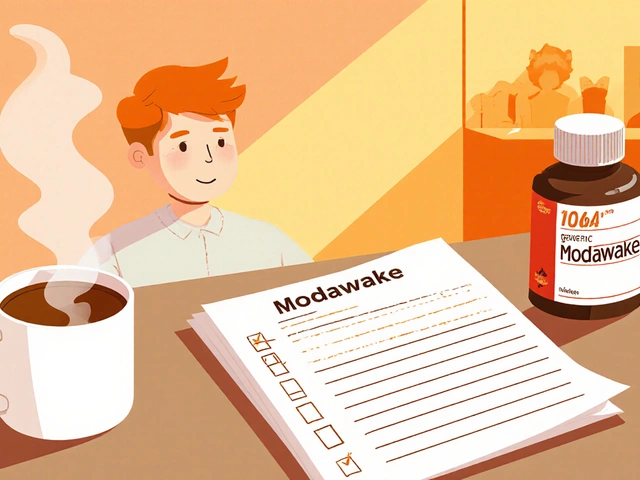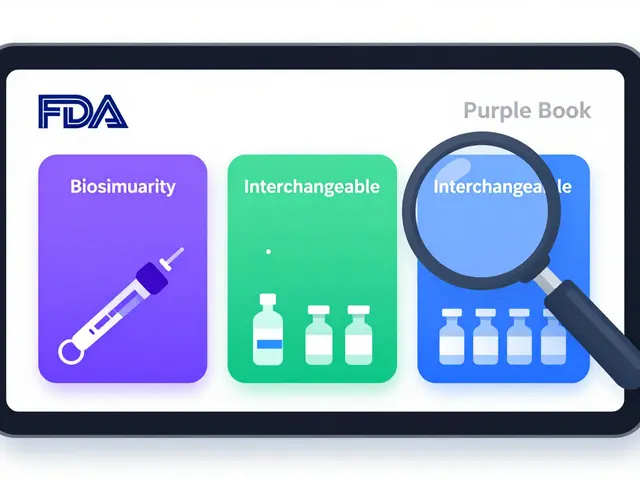Hypothyroidism: Signs, Tests, Treatment, and Daily Tips
Feeling tired, cold, or foggy often? Those are common signs of an underactive thyroid. Hypothyroidism happens when the thyroid doesn't make enough hormones. That affects your energy, weight, mood, and more.
Quick facts first: the most common cause is autoimmune thyroiditis, also called Hashimoto's disease. Other causes include certain medicines, radiation to the neck, and thyroid surgery.
How you know. Symptoms can be subtle at first. Watch for slow heart rate, dry skin, hair loss, constipation, heavy periods, and unexplained weight gain. In older adults, confusion and balance problems can be signs. If you notice several symptoms together, ask your doctor about testing.
Testing is simple. A blood test called TSH is the main check. Low T4 with high TSH usually confirms primary hypothyroidism. Your doctor may also measure free T4 and antibodies to check for Hashimoto's.
Treatment is straightforward for most people. Levothyroxine replaces the missing hormone. Take it on an empty stomach, thirty to sixty minutes before breakfast, and avoid calcium or iron supplements within four hours. Your doctor will adjust the dose based on symptoms and repeated TSH tests.
Medication interactions matter. Some drugs, like certain antacids, cholesterol binders, and iron pills, change how well levothyroxine is absorbed. Talk to your pharmacist if you take other medicines including antidepressants, heart drugs, or supplements.
Monitoring is ongoing. After you start treatment, expect a TSH check in six to eight weeks. Once stable, tests may be spaced out to yearly. If you become pregnant or start a new medication, plan an earlier check.
Lifestyle helps. A balanced diet, regular exercise, and quitting smoking improve energy and heart health. If weight is an issue, small consistent changes beat crash diets. Managing stress and getting enough sleep also support treatment.
When to call the doctor: sudden chest pain, severe shortness of breath, fainting, or rapid heartbeat. Also check in if symptoms get worse despite treatment or if you notice new cognitive problems.
Special cases: older adults and people with heart disease need careful dosing. Too much thyroid hormone can cause palpitations, bone loss, and trouble sleeping. Children and pregnant people need specific targets — pregnancy often requires a higher dose because the body needs more hormone.
Forget myths: natural desiccated thyroid works for some, but it varies. If you prefer that option, discuss risks and monitor levels closely. Do not stop or change doses without medical advice.
Useful tip: use a pill organizer and set a phone alarm to help take levothyroxine consistently. Keep a list of all your medicines and bring it to appointments. That helps catch interactions and avoids mistakes.
Where to learn more: trusted sites like government health pages, endocrinology societies, and reputable clinics offer clear guidance. If you read forums, take personal stories with caution and verify facts with your clinician.
Need help now? If you suspect hypothyroidism or feel worse on treatment, call your doctor. Proper testing and steady follow up make a big difference in feeling normal again. Seek help.

Thyroid Disorders and Arrhythmias: What You Need to Know
Thyroid problems can mess with your heartbeat in ways most people don't realize. This article breaks down why your thyroid matters for your heart's rhythm, what signs to watch for, and what you can do about it. You'll get practical tips, real-life examples, and some surprising facts. If you're dealing with heart palpitations or know someone with a thyroid issue, this is stuff you need to understand. No jargon, just clear info you can actually use.
View More




